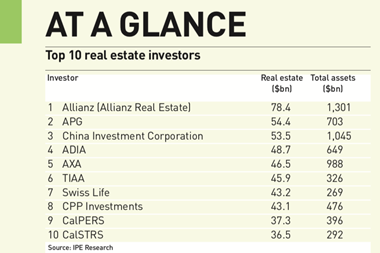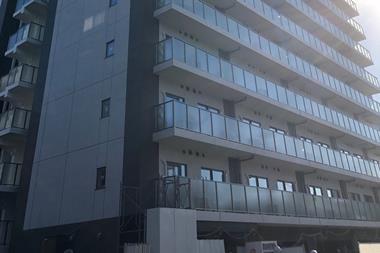Real estate allocations among sovereign wealth funds (SWFs) and central banks have fallen for the first time since 2018 – but this is expected to be followed by a resurgence in investment activity, according to a report by Invesco.
A majority (72%) of respondents to Invesco’s ninth annual Global Sovereign Asset Management Study believe that depressed valuations in the real estate sector in the wake of the COVID-19 pandemic represent a strong opportunity to invest in the asset class.
This is despite allocations to the average real estate allocation among 141 SWFs and 82 central banks – representing about $19trn in assets – falling to 8.3% this year, down from 9% in 2020 and 8.7% in 2019.
Invesco said it found that “any pause in deal making is likely to be brief and may, in fact, be followed by a period of more intense competition as sovereigns look to make up for lost time”.
More than half (53%) of sovereign institutions plan to make more real estate deals over 2021 than in 2020, and 27% intend to maintain the same level of activity.
Real estate also remains the most favoured alternative asset compared to other classes such as private equity, infrastructure or hedge funds.
“While allocations to the asset class have shown some signs of softening, institutions remain enthusiastic about the asset class,” said Rod Ringrow, head of official institutions at Invesco.
“As truly long-term investors, sovereigns have limited concerns about short-term reductions in valuation and yields, citing the attractiveness of the asset class as a diversifier, a shelter from volatility and, in some instances, a substitute for low-yield fixed income portfolios. In contrast to some bearish predictions, sovereigns were generally sanguine about the long-term impact of the pandemic on real estate portfolios.”
The study revealed confidence among sovereign investors that city centres and urban office markets will eventually regain their pre-pandemic dynamism, and that urban real estate investments will ultimately trump non-urban ones. Not surprisingly, given the disruption caused by the pandemic on retail and office markets, industrial and residential property are rated as more attractive.
Data centres were singled as out the most desirable real estate sector based on anticipated yields over the next five years – a category that has been growing rapidly in line with increasing demand for cloud-based services. Survey respondents noted that, once established, data-centres are rarely relocated and, therefore, offer secure long-term yields, with many expressing a desire to build up both expertise and exposure in area.
The most significant risk to real estate portfolios was identified as climate change – ahead of falling yields due to the pandemic. As a result, the vast majority (84%) are increasing their consideration of climate when making real estate investments and are increasingly incorporating climate risks within due diligence processes.
Currently, only 23% of sovereigns fully incorporate climate risks at the due diligence stage; however, 70% plan to increase their consideration of climate risks over the next five years.
To read the digital edition of the latest IPE Real Assets magazine click here.













